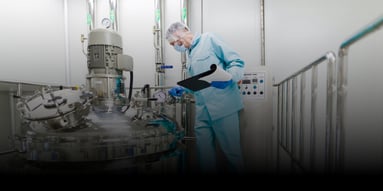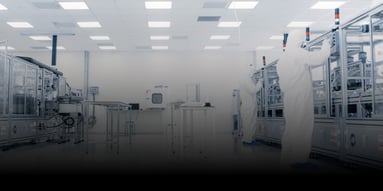How are life sciences organizations implementing sustainability goals into their engineering practices and CAPEX projects?

The life sciences industry has been making great strides in sustainability over the past few years, with many organizations focusing on reducing their environmental impact and creating more efficient processes. Our Global Life Sciences study: Forefront, surveyed 180 global industry leaders, interviewed 12 blue-chip pharma companies, and featured insights from our roundtable hosted by The International Society for Pharmaceutical Engineering (ISPE) on topics unique to pharmaceutical engineering teams.
We found that 25% of the companies surveyed plan to add a dedicated sustainability function to drive solutions across their organization. This is a sign of commitment to achieve sustainability goals and ensure that resources are used efficiently. However, only 56% of companies have a formalized set of sustainability goals, and the majority of those with goals have no strategic roadmap on how to achieve them. This suggests that while companies recognize the importance of sustainability, many are still at the beginning of implementing it effectively.
Efforts and goals
Sustainability efforts vary greatly among companies, with some relying on certifications such as LEED or ISO, while others use frameworks such as the GRI Framework or other sustainable frameworks to track and measure success. Over half of respondents use these types of frameworks, but 40% still rely on CAPEX approval processes which can make it difficult to justify investments in sustainability initiatives.
One popular approach to implementing sustainability goals is marking a baseline year and then committing to a certain per cent reduction in carbon emissions by a certain target date. This annual evaluation can be challenging for already energy-efficient sites and easier to achieve for inefficient sites, but it also involves increasing infrastructure, production, and headcount which adds complexity to the process. There is also an increased focus on single-use technologies due to their improved flexibility and efficiency; however, companies must evaluate them from a sustainability perspective before investing in them. Additionally, sourcing materials locally can help reduce transportation-related energy consumption.
While baseline standards is a one size fits all approach – this becomes an issue for organizations where they have different levels of new and old sites – what is achievable on one site may be far out of reach for another. This is just one of the challenges we identified that organizations are facing when implementing global sustainability targets. Others include trying to increase infrastructure and production while reducing baseline metrics, fitting design manufacturing for size and purpose, and improving processes for new building/capacity requirements.
Sharing best practices across networks
To address these issues, survey respondents suggested leveraging best practices across networks. Some of these best practices include outlining strategic roadmaps with specific metrics and goals, improving data collection systems and data analysis with technology solutions like artificial intelligence/machine learning analytics tools, and managing supply chain risks associated with unsustainable materials or practices. Even encouraging employee engagement through reward systems and developing stronger partnerships with suppliers who share similar values can be a valuable sustainability initiative.
Companies need to take an integrated approach to sustainability. This means going beyond traditional sustainability practices such as waste reduction and energy optimization and considering the entire life cycle of their products. From raw materials to disposal, companies must consider the environmental impact of every step of the process as well as the social and economic impact of their operations. For example, companies can work to improve the working conditions of their employees, reduce their carbon footprint, and invest in local communities. This approach not only benefits the environment and society, but it can also lead to increased profitability for the company.
Evolving approach to sustainability
Overall, life science organizations are clearly committed to becoming more sustainable through process improvements and resource efficiency initiatives. While there are still some challenges that need addressing such as baselining standards across networks and improving processes for new buildings/capacity requirements, many companies have already implemented robust strategies outlined in technical roadmaps. By continuing these efforts into the future, life sciences organizations can create positive change that will benefit people around the world for generations to come.
Learn more about how pharmaceutical organizations are approaching sustainability initiatives.


